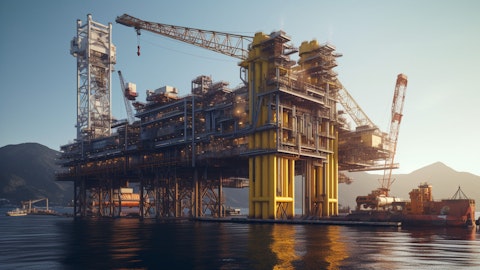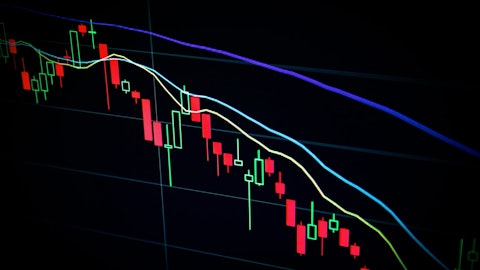Michael Wirth: Yes, Irene. So I think that the reference was simply these are additive to – versus prior periods. And so I wouldn’t want anybody to interpret that somehow they were different than what we expected because the OpEx and the DD&A are not different than what we expected. Synergy capture is good. We’re right on track to capture all of the synergies. No change to the guidance. We’re confident that there’s upside. And we’ll realize that over time as we have on other transactions. We think there’s additional operational midstream and procurement synergies that we didn’t build into our initial target. And the CapEx synergy has been captured as well. So the nice thing about this in a quarter, where I appreciate Doug’s view that maybe the reaction here has been a little over, we closed the transaction five months ahead of guidance.
We pick up additional production for a bigger part of the year, the earnings and cash flow that go along with that. We’ve already paid off some high-cost debt. And so we’re integrating that into our business now. And it’s a very sound transaction that is going to deliver, I think, everything that we expected and then some.
Irene Himona: Thank you very much.
Michael Wirth: Thanks, Irene.
Operator: We’ll go next to Jason Gabelman with TD Cowen.
Jason Gabelman: Hi. Hello.
Michael Wirth: Good morning, Jason. Yes, we are here.
Jason Gabelman: Hi. Sorry, about that. Good morning.
Michael Wirth: Sorry to wake you up, Jason.
Jason Gabelman: Yes. Hi. Can you hear me?
Michael Wirth: I can.
Jason Gabelman: Okay. Good. I wanted to ask about what’s going on in your Middle East footprint. You’ve obviously had to take Tamar offline. I believe that’s a fixed price asset that you’re receiving, so probably not a large cash impact. But if you could remind us what the cash impact is and the ability to maybe reroute that gas somewhere else or offset those losses, and then how you think about the Eastern Mediterranean growth profile overall, if there’s any change how you’re thinking about it in light of the recent events over there. Thanks.
Michael Wirth: Yes, I’ll take the second part of that and then ask Pierre to address the cash and production impact. It doesn’t change our view on the development opportunities really at all, Jason. This is a long-term play. It’s a very, very large gas resource. We like some of the follow-on exploration opportunities in the region. We’re working on the Aphrodite field in the waters offshore Cyprus to develop. We’re working expansion projects that have been sanctioned on both Tamar and Leviathan and further expansion ideas on Leviathan. And so we’ve got to take a long-term view, which is measured in years and decades. And when you have things in the short-term that create the circumstances that we see right now, we have to be prepared to mitigate those risks and to keep people safe and maintain the integrity of our operations.
But it doesn’t change our long-term view on the attractiveness of the asset and the development opportunities. I’ll let Pierre address the cash question.
Pierre Breber: Yes. We don’t talk about our specific contracts, and there’s numbers of them. But I think, in effect, you’re right, there’s some escalators tied to inflation. There’s some oil price sensitivity. But it’s within sort of a floor and a ceiling. And these are regional gas prices that are well below international prices. So we don’t know how long. We gave the guide on the production and the impact on cash flow is very modest. It’s tens of millions of dollars in terms of doing the calculation. And so we’ll just see where we end up in the quarter and how long it is shut in for. Thanks, Jason.
Jason Gabelman: Okay.
Operator: We’ll go next to Ryan Todd with Piper Sandler.





